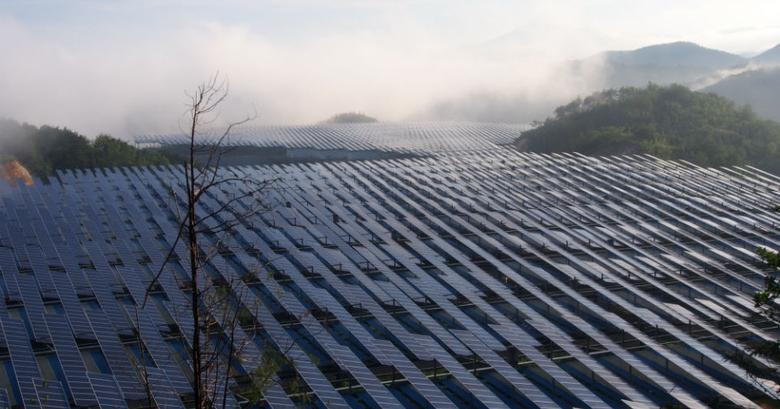
S.KOREA'S CARBON NEUTRALITY $7 BLN

ENERDATA - 29 Oct 2020 - South Korea has pledged to reach carbon neutrality by 2050. The country plans to spend KRW8,000bn (US$7.1bn) on a Green New Deal, aimed at developing a low-carbon economy that would focus on developing electric and hydrogen cars. The country aims to raise the number of electric vehicles on the roads from 91,000 in late 2019 to 1.13 million by 2025 and that of hydrogen cars from 5,000 to 200,000. South Korea also plans to renovate public buildings, create low-carbon energy industrial complexes to reduce reliance on fossil fuels, set up a foundation for new and renewable energy, and create urban forests. This announcement is in line with an April 2020 proposal calling for ending financing coal-fired power plants overseas and for introducing a carbon tax.
In May 2020, South Korea unveiled a long-term energy plan (basic energy policy for the years 2020-2034) shifting from thermal and nuclear power generation to renewable energies. The plan aims to raise the share of renewables in the power capacities from the current 15% to 40% by 2034, while keeping the share of LNG-fired power plants from around 31-32% and closing all the coal-fired power plants whose 30-year operational life expire by 2034. In September 2020, the government announced plans to shut down 10 existing coal-fired power plants by 2022, and another 20 by 2034. South Korea currently has 60 coal-fired power plants accounting for more than 1/4 of total power generation in 2019. Half of the operational coal-fired power plants would be concerned by this 30-year closure conditions.
CO₂ emissions from fuel combustion increased between 2000 and 2018 (2.3%/year) but declined in 2019 (-3.6%) to 650 MtCO2 (roughly 2.7 times the 1990 level). In its first NDC, South Korea aims to reduce total GHG emissions by 37% from BAU level by 2030 (excluding LULUCF).
-----
Earlier:

2020, September, 9, 11:30:00
S. KOREA'S HYDROGEN FUEL CELL SYSTEM
The export falls in line with South Korean government's plan to promote hydrogen fuel cell systems as a new key export product,
|

2020, August, 28, 15:10:00
S.KOREA'S NUCLEAR POWER
As of August 2020, South Korea operates a fleet of 24 nuclear reactor units, representing 23.2 gigawatts (GW) of capacity, at four nuclear power complexes.
|

2020, August, 18, 12:15:00
S.KOREA'S HYDROGEN POWER PLANT
The Daesan hydrogen fuel cell power plant is a near-zero-waste operation, according to Hanwha Energy.
|












